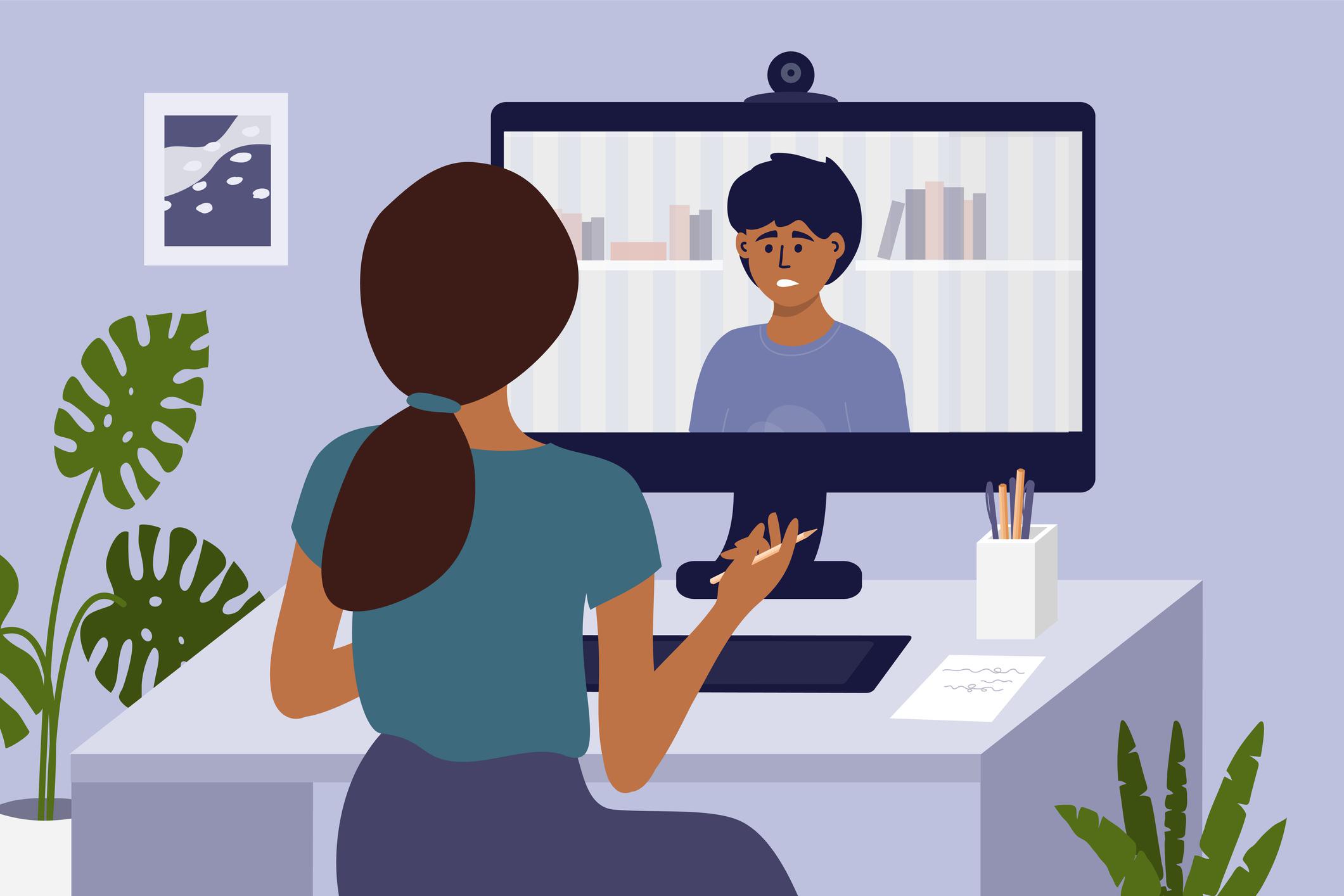
In previous articles, we've discussed PTSD, which stands for Posttraumatic Stress Disorder. People who have experienced or witnessed a traumatic event, series of events, or set of circumstances may develop this psychiatric disorder. A person may perceive this as emotionally or physically damaging or life-threatening, and it may negatively impact their mental, physical, social, and/or spiritual health.
This time, we'll discuss telecounseling and the application of technology in healthcare.
Telecounseling is a real-time and live interactive program in which one group of participants is located at one or more locations and the other group is located at one or more locations. The teleconference enables interaction between at least two sites using audio, video, and possibly other modalities. It is a contemporary method of receiving therapy via a secure platform that facilitates video sessions, ongoing direct messaging therapy, or a combination of the two.
Telecounseling and telepsychiatry involve direct communication between a therapist and a client. Clients only need a phone, tablet, or computer to utilize teletherapy. These are examples of teletherapy sessions:
· Telephone conversation
· Online conversations
· Email exchanges
· Videoconferencing
Using devices that the majority of people already possess, obtaining online therapy can be simple! Technology advancements have aided both mental health care providers and their patients in overcoming obstacles that previously prevented many from providing or seeking treatment.
Moreover, with the rise in demand for mental health services, the limited availability of PTSD specialty services in many geographic areas, and the rapid development of technology, Telemental Health (TMH) modalities are dramatically altering the mental health landscape in general and for trauma survivors in particular.
Although TMH may employ a variety of technologies, clinical video teleconferencing technology (CVT) is the most extensively used and best-studied technology. Using CVT, a patient (or group of patients) in one location and a clinician in a different location can see and hear each other in real-time using a computer monitor or television screen.
Advantages of Telecounseling
Online counseling has numerous advantages over conventional mental health counseling services. Occasionally, such as during a pandemic, the advantages of online counseling outweigh those of traditional counseling. Teletherapy has the following advantages:
1. Makes mental health care more convenient and easy to get.
Teletherapy improves client access. Mental health care is easy for clients with hectic schedules, restricted mobility, no transportation, or rural locations.
Teletherapy is convenient for COVID-19 stay-at-home orders. Clients can continue treatment at home without interruption.
2. Makes up for the lack of mental health care
As of 2017, 46.6 million Americans have mental illness, according to the National Institute of Mental Health. For various reasons, less than half obtained mental health services.
Mental health providers are few. According to the National Council of Behavioral Health, 77% of U.S. counties lack mental health providers. Traditionally, fewer healthcare providers meant fewer client appointment slots.
3. Protects clients' privacy and makes them feel better
Due to stigma, less than half of mental health patients seek therapy. Many people fear being seen entering or leaving their therapist's office.
Teletherapy eliminates the need for office visits. Therapists can call or video conference with clients to do therapy sessions at home. Familiarity has its benefits! If a client feels safe and comfortable, they'll talk about their anxiety, sadness, or other concerns, boosting their treatment.
4. Helps improve the overall quality of health
Mental health issues can improve client health. The WHO defines health as “a state of complete physical, mental, and social well-being and not merely the absence of disease or infirmity.” By this definition, mental health is essential to health.
According to the CDC, mental problems like depression are linked to chronic diseases like asthma, cardiovascular disease, diabetes, obesity, and cancer. Mental health affects total well-being in numerous ways.
5. Makes both patients and providers satisfied
Telehealth helps individuals stay healthy and receive regular care for their diseases. Providers offer convenience, flexibility, and real-time care.
Healthcare practitioners must meet patient requirements and retain them, which can be difficult. Telehealth speeds up and simplifies patient care, improving job satisfaction. Telehealth helps therapists and counselors balance work and family.
____________________________________________
Mental health issues such as anxiety, depression, and stress can have a negative effect on mental health, particularly during periods of widespread isolation and uncertainty, such as the COVID-19 pandemic.
Telecounseling is at the forefront of the medical community, and when utilized appropriately, it can be extremely advantageous for both clients and providers. At Jewish Family Service, clients can easily communicate or videoconference with mental health counselors using their phones, tablet, or computer.
HEALTHCARE SOLUTIONS OFFERS ONLINE COUNSELING
TELETHEALTH

Schedule Your Telehealth Visit
Contact us at 713 - 723 - 8300
www.hcschiro.com/telehealth
References:
www.psychiatry.org/patients-families/ptsd/what-is-ptsd
www.ptsd.va.gov/professional/treat/txessentials/telemental_health.asp
www.jewishfamilyservice.org/blog/5-benefits-of-using-teletherapy-for-mental-health-counseling